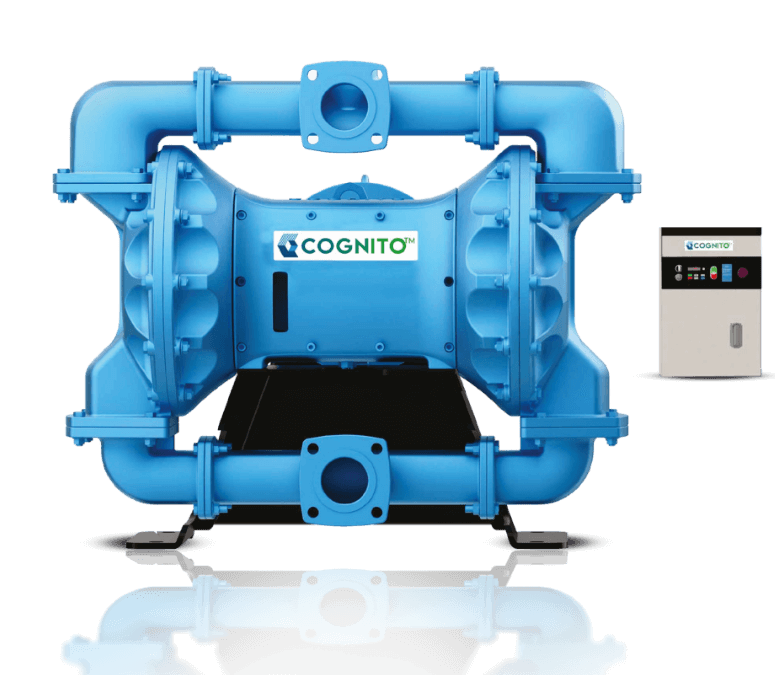Key Features and Benefits of Hydraulic Diaphragm Metering Pumps
 |
| Key Features and Benefits of Hydraulic Diaphragm Metering Pumps |
Modern industries that
require precise fluid dosing, including chemical processing, water treatment,
and food production, often need an efficient, high-performance, and reliable metering pump that delivers again and
again. Hydraulic diaphragm pumps have been known to meet such stringent
requirements and more. These systems feature a special kind of pump that
transfers fluids by means of a diaphragm mechanism. These pumps work almost
like regular pumps with a rotary motion; however, they use hydraulic pressure
to drive the circular movement of a movable diaphragm.
In this article, you will
learn about the key features and benefits of hydraulic diaphragm metering pumps
and understand their role in improving industrial efficiency and operational
safety in the context of modern industry applications.
So, how do hydraulic
diaphragm metering pumps work? The simple answer lies in three words -
hydraulic actuation mechanism. The pumps use a hydraulic fluid system to move
the diaphragm, allowing super-consistent and precise metering of fluids. If you
compare these pumps with mechanically actuated pumps, you will learn that the
hydraulic actuation mechanism reduces wear and tear on components, resulting in
a much longer operational life and significantly lower maintenance costs.
However, there are more benefits of using a good quality hydraulic diaphragm metering pump. Read on.
Benefits of Hydraulic
Diaphragm Metering Pumps
They are leak-proof
- Modern industries, especially the ones dealing in hazardous, corrosive, or
toxic chemicals, need equipment that ensures worker safety and environmental
protection. Hydraulic diaphragm metering pumps prevent leakage and reduce
contamination with their hermetic sealing.
Precise dosing, every single
time - There are several ways in which
hydraulic diaphragm metering pumps make consistent dosing possible. For
example, hydraulic fluid is used to drive the diaphragm, which allows for
smooth, controlled movement without pulsation inconsistencies. Secondly, the
diaphragm is designed to move in a very controlled manner, which means that a
fixed volume of fluid will be displaced with each stroke.
They will perform in all
pressure environments - Hydraulic
diaphragm metering pumps are designed to operate under high pressures, often
exceeding 100 bar (1,500 psi). This capability – where the diaphragm movement
remains unaffected by any fluctuations in discharge pressure - makes these
pumps a favourite among industrial applications that need to work under high
pressure.
They are built for
robustness – Made of tough materials
such as stainless steel, Hastelloy, and various chemically resistant plastics,
hydraulic diaphragm metering pumps can withstand aggressive chemicals and
extreme operating conditions. No matter how challenging the fluid is, these
pumps continue to perform for years without getting corroded.
You can adjust the flow rate
- With hydraulic diaphragm metering pumps; operators have control over the
stroke length, which decides how far the diaphragm moves per cycle, directly
affecting the volume of fluid displaced. One can also control the number of
strokes per minute to get a precise flow rate.
Hydraulic diaphragm metering
pumps are safe - No modern equipment or
system would actually make a name in the market unless it delivers safety.
Hydraulic diaphragm pumps offer various safety mechanisms, such as pressure
relief valves, rupture detection systems, and automatic shut-off functions.
These safety features ensure the pump comes to a halt in case it detects
overpressure conditions, allowing for safe operations.
They are energy efficient
- Historically, high-pressure environments often lead to more energy
consumption from applications. However, hydraulic diaphragm metering pumps
consume less energy than other metering technologies, even with high-pressure
applications.
By now, you know that hydraulic diaphragm metering pumps
offer a ton of benefits, however, it is important to realise that only the best
brands of pumps can be trusted to offer quality and consistency. A brand like
Pulsafeeder, for example, is known for its pumps that feature rugged
construction, dependable performance and API-675 compliance.
Pulsa Series Hydraulic
Diaphragm Metering Pumps by Plusafeeder
·
All the pumps under this
series offer a manual stroke adjustment mechanism, allowing operators to adjust
the flow rate per their requirements.
·
These pumps are designed to
comply with API-675 3rd edition, making them trustworthy and reliable.
·
These pumps can handle
pressures from 9.5 to 9100 LPH with a simplex.
·
They offer – +/- 1.0% of set
point capacity.
·
All Pulsa Series hydraulic
diaphragm metering pumps can handle fluids with viscosities from 0.1 to 1000
cP.
·
They come with 5-year
warranties on gear train. Extended warranties are also available.
Pulsa Pro Series Pumps
·
These pumps feature a
four-bolt check valve design, hydraulic diagnostic package, and hydraulic
bypass valve.
·
These pumps can handle
applications with pressures up to 220 Bar.
·
All pumps in this series
come with 5 years drive train warranty, the longest in the industry.
·
Made of materials such as
316L, Alloy 20, Alloy C 316L, and Monel, these pumps are robust.
To learn more about Pulsafeeder diaphragm pumps and their use, head to their website today - https://www.idexindia.in/pulsafeeder/



Comments
Post a Comment